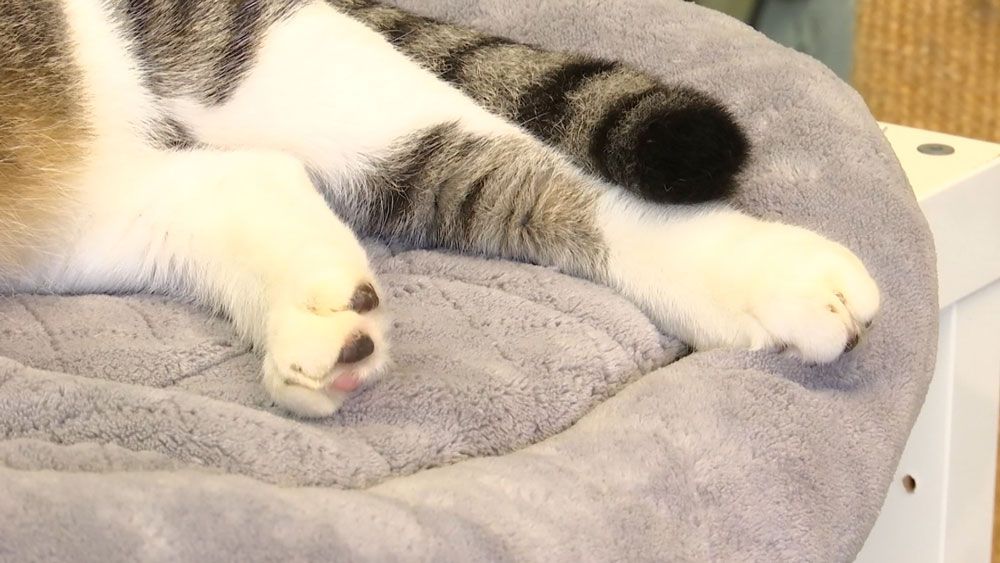TAMPA, Fla. — Lawmakers in Florida are looking at joining New York in banning cat declawing.
- Florida bill would ban cat declawing
- Vets say declawing is painful, causes psychological effects
- New York is the 1st state in the country to ban it
“My first day on the job, they did a declaw, and I was so horrified I was physically ill,” said Dr. Debra Moon, shelter veterinarian at the Humane Society of Tampa Bay.
Which is why she opposes declawing cats.
“You push out the claw like that and you would actually fit this over beyond that third bone, that final bone, and cut. And you’re cutting the bone off, you’re cutting between bones. So the bone is coming off. You’re also cutting the tendons and the ligaments,” said Moon.
Dr. Moon says the practice is extremely painful, and can also have psychological effects since the procedure removes a cat’s first line of defense.
“If they’re warning you or another animal, they’ll bop with the foot without the claws. And if you don’t back off, the claws come out, that’s the next warning sign. And then the third would be bite. And so when you take away the ability to do that, then there is a possibility that the first thing they would do would be to bite you,” said Moon.
The American Association of Feline Practitioners, a professional group for feline veterinary specialists came out against cat declawing in 2017, and since then more vets have followed their lead. They came out with a user friendly guide on their owner website.
The American Veterinary Medicine Association does not outright ban cat declawing, but says the procedure should only happen after pet owners get a full education on cat behavior, the procedure and the consequences.
"Declawing of domestic cats should be considered only after attempts have been made to prevent the cat from using its claws destructively or when its clawing presents an above normal health risk for its owner(s)," said an AVMA policy statement on its website.
So far, New York is the only state to make the practice illegal, and Florida’s proposal mirrors their law.
According to the bill, there are exceptions for illnesses, infection, disease, injuries, or any other condition that might compromise a cat's health.
If passed, those who violate the law could be fined $1,000, and veterinarians in violation could see action from the Board of Veterinary Medicine.
Here in Florida, we have not yet been able to track down any groups against this law, but as of now, declawing is still legal.
Dr. Moon wants people to remember you have other options to keep your pets' destruction at a minimum.
From nail caps to a scratching post, or the easiest option — trim the cat’s nails!
“If you keep them trimmed, you trim right up to where the blood vessel is, then it’s a nice blunt surface. It won’t do nearly the damage to your skin or your furniture, that’s a simple cheap way. You can even get these at the dollar store,” said Moon.
AVMA also offers a few more suggestions:
- Providing appropriate scratching surfaces, such as dedicated posts and boards that are tall enough to encourage full stretching. What constitutes an attractive surface or location varies by cat, so don't be afraid to get creative!
- Scenting with catnip may help too.
- Frequent nail trims - every 1 to 2 weeks
- Nail caps - replaced every 4 to 6 weeks
- Positive reinforcement training, beginning with kitten kindergarten if available
- Pheromone sprays and/or plug-ins
- Discourage use of inappropriate surfaces by attaching sticky tape or tinfoil
The bill will be discussed during the next legislative session, which begins in January.



